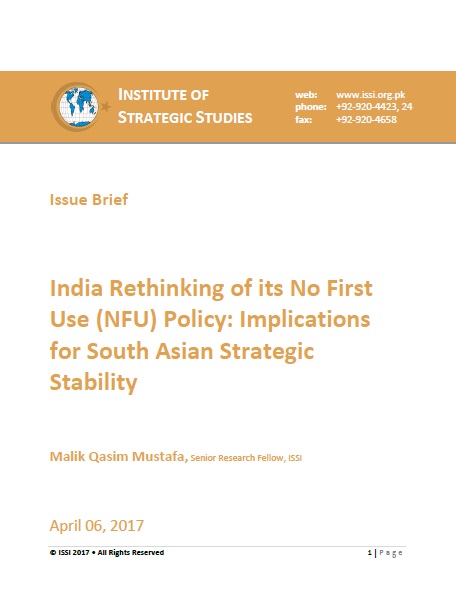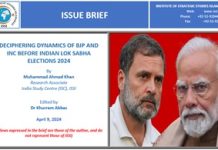To safeguard national security interests, several states have developed nuclear weapons capabilities and have devised their nuclear policies and doctrines to deter adversaries. Due to their threat perceptions, and due to the catastrophic consequences of use of nuclear weapons, nuclear weapon states have adopted different nuclear weapon use policies, including the defensive use or the No First Use (NFU) policies. China was the first one who adopted the NFU policy in 1964 and still following it.
In the South Asian context, in 1999, when India initially outlined its draft nuclear doctrine of Credible Minimum Deterrence (CMD) it adopted a NFU policy. India highlighted that it has the right to respond with countermeasures against any threat of use of nuclear weapons, and can even punitively retaliate with nuclear weapons to, “inflict damage unacceptable to the aggressor,” if India or its forces are attacked with nuclear weapons.[i] Later on in 2003, India modified its NFU policy and made it more ambiguous and vague when the Indian Cabinet Committee on Security (CCS) declared that in an event of a biological and chemical attack against India or its forces anywhere, it would retaliate with nuclear weapons.[ii]















